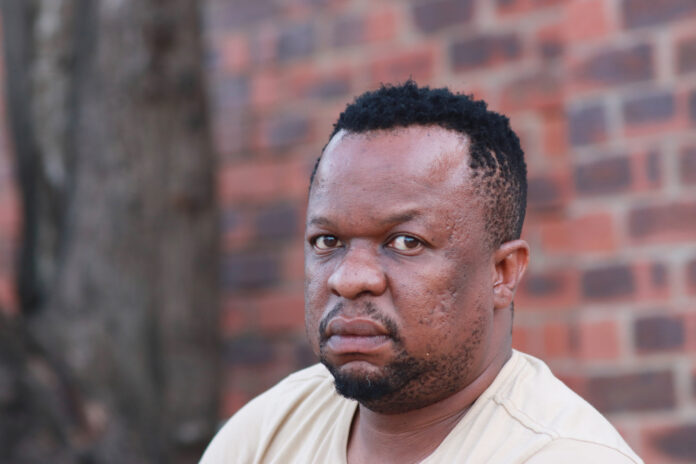—As his confiscated cell phones remain in the DCEO’s illegal custody
Moorosi Tsiane
LESOTHO Times and Sunday Express Editor, Mohalenyane Phakela, has narrated the ordeal he endured at the hands of officials from the Directorate on Corruption and Economic Offences (DCEO) after they illegally arrested and detained him from Friday to late yesterday afternoon.
They only released him after international pressure mounted for his release from the illegally orchestrated custody.
Mr Phakela was arrested over a corruption story involving the under-fire Lesotho Correctional Service (LCS) Commissioner, Mating Nkakala. A state appointed Commission of Inquiry has recommended Mr Nkalala’s dismissal after characterising him as an “incompetent political appointee” who should never have been allowed to rise to the uppermost rank of running the country’s jail system.
This after LCS officials brutally tortured prisoners killing one and injuring several of them in December 2023 as they tried to establish a prison break by some of the inmates who were later re-apprehended.
Theft
The Lesotho Times had reported in its latest edition that the DCEO was separately investigating Mr Nkakala for allegedly stealing three plasma televisions donated to the LCS by a major local corporation in 2022. It is alleged that instead of putting them in prisons for the benefit of inmates, Mr Nkakala had taken them for private use.
The story quoted a letter the DCEO had written to the corporation in question (Toyota Maseru) requesting confirmation of the donation.
That seemed to have raised the ire of the DCEO which has complained of leakage of its internal documents by some of its officials to the Lesotho Times. The anti-graft body is understood to have summoned officials from the corporate in question – Toyota Maseru – after which it sought to interview Mr Phakela whom it accused of having impersonated a DCEO official to get access to its letter from that company.
As of now, we do not know the basis of the DCEO’s claim in terms of who is their witness in the impersonation claim (see story on Page )
Drivel
But Mr Phakela vehemently and unequivocally dismisses the impersonation claims as absolute drivel.
In their quest to target Mr Phakela over the apparently harmless letter, DCEO officials seized Mr Phakela from the Lesotho Times’ offices late on Friday.
In a move that flies in the face of the law, the DCEO agents seized his cell phones without a search warrant. That move is in complete violation of a Constitutional Court order that has expressly barred law enforcement officers from such illegal seizures. The Constitutional Court made the pronouncement after the National Security Service (NSS) in May 2023 seized Basotho National Party leader Machesetsa Mofomobe’s mobile phones after falsely accusing him of involvement in the murder of Tsenolo FM journalist, Raleniko Joki, among other things.
What makes the DCEO’s actions against Mr Phakela even more egregious is that in Mr Mofomobe’s case, the NSS had at least made an effort to obtain a search and seizure warrant. But in June 2023, the High Court (sitting as a Constitutional Court) ruled that that same warrant to seize and search Mr Mofomobe’s mobile phones was illegal as it violated his right to privacy.
In the DCEO’s case, no warrant was produced before Mr Phakela nor his lawyer, Mr Christopher Lephuting.
The Lesotho Times will explore all avenues to hold the DCEO accountable for its illegal actions.
After interrogating officials from Toyota Maseru, the DCEO had then sought Mr Phakela. It remains to be seen whether or not the official from Toyota Maseru buckled under fear or pressure and misled the DCEO that Mr Phakela had impersonated himself to the company.
But to Mr Lephuthing, it seems the DCEO had long harboured a grudge against Mr Phakela after he published information about its probes.
“Around 5pm on Friday, I got a call from a person who introduced himself as Senooe from the DCEO.
“He said he wanted to meet me, and I asked what the agenda was and his response was that it’s related to his work. I told him I was at the office and he came with another officer,” Mr Phakela said.
Once Mr Senooe had arrived at the Lesotho Times he asked Mr Phakela to accompany them to the DCEO head office.
“He (Senooe) said I should go with them to the DCEO office and I asked if I was under arrest and what for? He said we would only be able to talk at their office as there were documents I needed to respond to. He refused to disclose the case I was required for and he gave me two options – either I follow them to the DCEO office, or they would take me there by force. I opted to follow them.”
Ordeal
Upon arrival, Mr Phakela said an ordeal he had not anticipated began.
“I was told to place my two phones on the table and then I was told I was being investigated for impersonating a DCEO officer. Senooe told me the information they had was that I went to Maseru Toyota and demanded information regarding the televisions which Toyota donated to LCS (for use in prisons but allegedly stolen by Nkakala) claiming I was a DCEO officer.”
Mr Phakela said he flatly denied the allegations.
“I explained to the three DCEO officers interrogating me that I introduced myself as a Lesotho Times journalist to Toyota Maseru and even provided a company email for the information regarding the TVs to be sent to by the company official who was assisting me. The official had said she preferred to send the information by mail.”
But Mr Senooe would not take any of it. He then bizarrely accused Mr Phakela of having a “habit” of “stealing” DCEO information.
“Senooe told me I had a habit of stealing DCEO information and they wanted to know who was feeding me information from the DCEO. I told him I had no source within the DCEO and they checked my call register and numbers stored in my phone to try and establish which DCEO officers I communicated with.”
They seemed to have only seen the number for the official spokesperson of the DCEO that every journalist must ordinarily interact with for official comments. The grilling then dragged on.
“After some two hours of interrogation I was told to go out and wait in the corridors and, about 40 minutes later I was called back, and by that time they had downloaded data from my two phones. When the questioning resumed, he (Senooe) was now referring to data on his laptop which he said he had downloaded from my phone.”
Lawyer
As the pressure mounted, Mr Phakela said he asked to be allowed to call his lawyer to join him.
“At this juncture, I felt I needed a lawyer as I felt their intention was to force me to admit to things which were not true,” he explained.
“He (Senooe) immediately ordered me to remove my belt and shoelaces as I was being locked up. He said since I wanted to exercise my right to legal representation, he would exercise his right to detain me. He said I was to be detained at Maseru Central Charge Office and would only go to court on Monday.”
“He (Senooe) said he was going to teach me a lesson that DCEO information was off limits, so that I will not repeat it again. He said I had previously put him in trouble with the fertiliser docket whose contents I had published in the Lesotho Times since he was the custodian of that docket before it was leaked to the media.”
Mr Phakela had in September 2024 reported on the DCEO’s investigation of the corruption and fraud involving tenders worth M109 million for the purchase of agricultural inputs by politicians, their business cronies and government officials at the Ministry of Agriculture, Food Security and Nutrition.
Mr Lephuthing, who had rushed to the DCEO after getting Mr Phakela’s call, had repeatedly tried to intervene to inform Mr Senooe that what he had done in seizing Mr Phakela’s phones without court authorisation was illegal. Mr Senooe appeared to turn his ire to the lawyer, emphasizing that “I had to be dealt with as the incidents of me getting DCEO documents had been recurring….”
“Advocate Lephuthing then pleaded that I be released into his custody, and he would bring me to court on Monday, but Senooe rebuffed him. He said I had to be taught a lesson….,” said Mr Phakela.
Detention
Indeed, the night ended in Mr Phakela’s overnight detention as per Mr Senooe’s vow.
“I was then ferried to Maseru Central Charge Office at around midnight where I was detained until around 4pm on Saturday when I was released after a night sleeping on a cold concrete floor,” said Mr Phakela.
For Mr Phakela, his release came unexpectedly when two DCEO officers who had been interrogating him with Mr Senooe arrived and demanded to see him.
“It was only then that they asked me whether I had food and whether I was still fine. My response was affirmative. They went out and returned to tell me that I was being released.”
Shackled
But even in freedom, Mr Phakela remains shackled as he was told to report back to the DCEO on Monday with the anti-corruption body still clutching onto his cell phones.
“I was told to report back to the DCEO on Monday at 8am. I then proceeded to the DCEO to collect my belongings but I was told I could still not get my phones.”
Of course, unbeknown to Mr Phakela, while he was being subjected to a night of indignity, international pressure for his release was mounting.
Law enforcement officials the world over seem to take the arrests of journalists for granted. But they don’t know that journalists – as purveyors of information via the mass media – have effective means and ways of connecting to spread their stories across the world.
Reckless and illegal actions against journalists, such as Mr Senooe’s open vindictiveness against Mr Phakela, have a way of attracting international opprobrium.
From the Committee to Protect Journalists in New York, United States, to the European Union and local and regional press freedom groups, there were unanimous calls for the DCEO to cease their illegal actions against Mr Phakela, leaving the anti-graft body with no alternative but to release him.
Vindictive and illegal arrests of journalists – for merely doing their work – also tend to cast bad international spotlight on any country involved by providing a platform for exposure of all other bad things that have happened in the country concerned.


